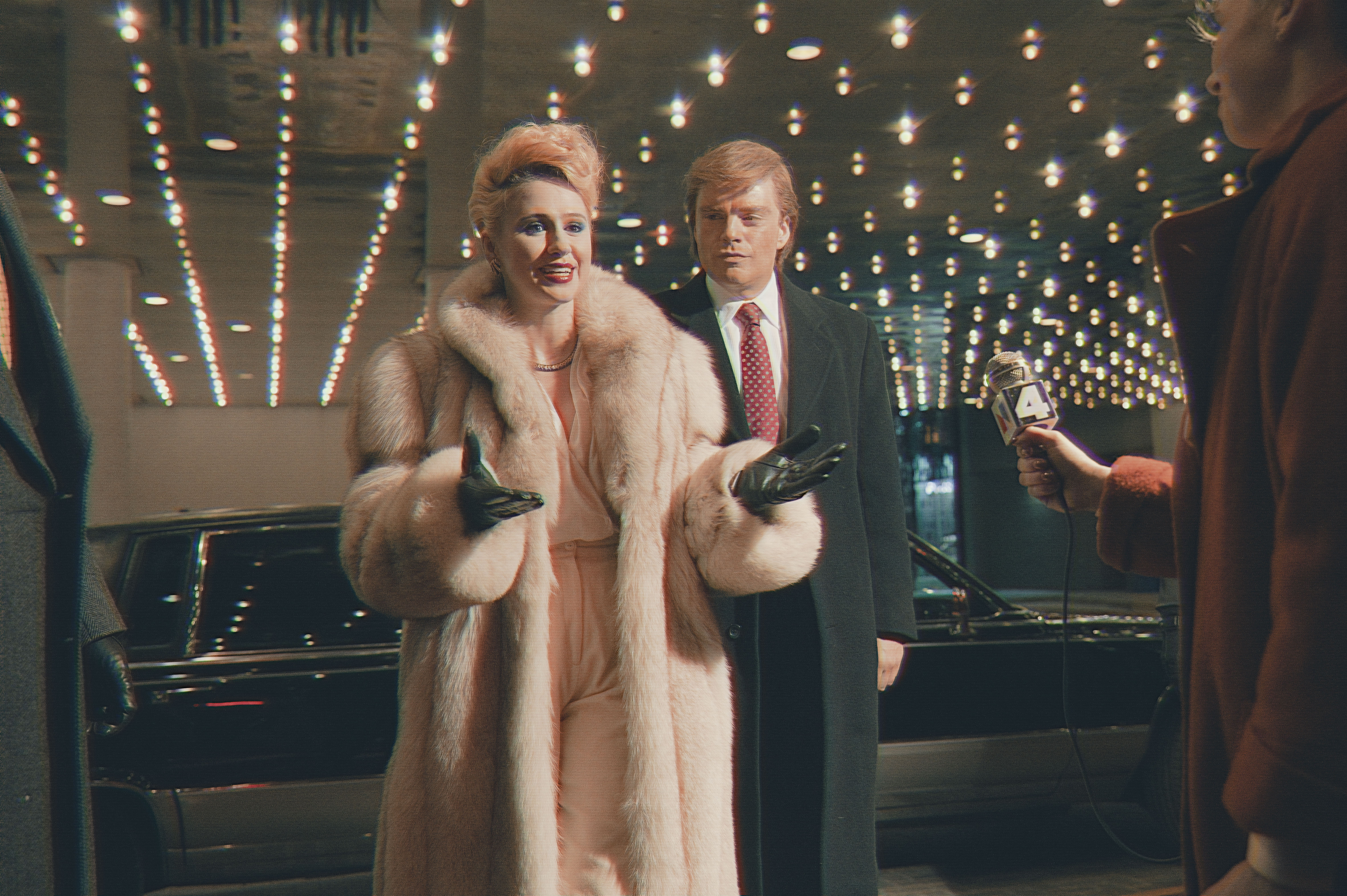Sebastian Stan plants his flag in the race for the Oscar in an audaciously understated film about how one of the world’s most powerful men crafted his image.
There is no doubt that The Apprentice will prove a divisive film, and I’m sure prompt a whirlwind of headlines and thought pieces upon its release. The film already proved polarising in its Cannes bow, has prompted a cease and desist letter from former President Trump, and is struggling to find a distributor that will risk his ire by releasing it. The film seems primed to dive head-first into the storm of hyperbole and division that is the Trump circus. However, where its strength lies is in its attempts to circumvent this circus, and to ground Trump’s origins in the economic realities and political relationships which helped forge him.
The film follows Trump (Sebastian Stan) in his early business years during the 1970s and 1980s, and his quest to build the gilded monolith of Trump Tower. It is a quest which Trump is alone in wanting to undertake, and the film initially presents him as something of a visionary ploughing forward where others daren’t. Along the way Trump finds one close ally in the notorious rottweiler lawyer Roy Cohn (Jeremy Strong), who becomes his closet advisor and mentor. It is Cohn who teaches Trump his bombastic, aggressive, and unapologetic style, and the film follows their alliance in developing the Trump brand.
The film does a strong job deconstructing a now so mythologised figure, and embedding him as a product of both Roy Cohn’s mentorship and, more importantly, the neo-liberalism of the late twentieth century. Gordon Gecko’s “Greed is Good” ethos bleeds throughout the film, and influences of 1987s Wall Street and similar films are clear. Trump is presented not as some unique figure or aberration from the norm, but rather more frighteningly as the result of an entrenched economic and social system which not only permits, but is conducive to, the duplicitous and “braggdocious” behaviour carried out by those at its top.

To this end, Sebastian Stan offers a refreshingly restrained performance as the up-and-coming tycoon. He avoids the SNL caricature which has become so associated with Trump on screen, and offers up a far more nuanced portrayal. He develops Trump’s mannerisms throughout the film, and gradually builds them into the stylised and orchestrated image we know today. This inherent artifice is nicely complemented by a rather unsettling scene of Trump undergoing plastic surgery, which feels oddly reminiscent of Darth Vader’s transformation at the end of Revenge of the Sith.
There are certainly moments when Trump’s characteristic hand movements, pursed lips, and affectatious intonation protrude a little too obtrusively into the film. Overall though, Stan offers a subtle and chillingly credible portrayal of the president-to-be. The performance marks his flag firmly in the ground for consideration at next year’s Oscars. The performance put me in mind of Michael Keaton in the McDonald biopic The Founder, as we are first presented with an alienating but fundamentally humane figure, and shown his steady turn into a zealot of capitalist avarice.
Jeremy Strong gives a similarly accomplished performance as Roy Cohn, combining his pugnacious personality with a simmering mania and outrageous self-delusion as a defender of American values. There is certainly overlap between Cohn and Strong’s other most famous role as Kendall Roy in Succession, but Strong never retreats into this role and carves out something thoroughly unique.
The shadow of Succession does, however, loom over the film at large which shares many similar thematic beats to the Roy family saga. The Apprentice at times even has quite a televisual aesthetic, and there is also the inclusion of a reference to Trump’s biography, ‘The Art of the Deal’, which has a very shonky TV movie feel.
At its strongest, the Iranian/Danish director Ali Abassi, who makes his English language debut, imbues the film with a subtle gothic quality which reflects the macabre foundations of American power. Cohn cuts an especially gaunt and ghoulish figure throughout the film. When he first spies Trump across their shared members club he appears almost like a vampire, and later when lounging on a sunbed he possesses all the slimy qualities of some pre-historic amphibious monstrosity. Over the course of the film, these qualities are transferred to Trump, possibly signalling the handover of one corporate bloodsucker to the next. Even Trump’s Mar-a-Lago resort is shot from extreme high and low angles giving it a looming cavernous effect which feels reminiscent of Nosferatu’s lair, or maybe even Citizen Kane’s Xanadu, a film which profoundly impacted Trump for all the wrong reasons.
Maria Baklova offers a strong but, sadly in the end, merely serviceable role as Trump’s first wife Ivanka. While Charlie Carrick offers a brief but movingly tragic performance as Trump’s older brother Freddy. This fleshes out a side of Trump’s life that was largely unknown to me, and I suspect most people.

I doubt The Apprentice will move the needle politically and, even if released in time, it is unlikely to mark an incisive intervention into the 2024 presidential election. Those who see the film, regardless of whether they love or loathe it, will simply become entrenched in their pre-existing political persuasions. There are no surprising revelations, and while the brief inclusion of a sexual assault against Ivanka is horrible to watch, its shock factor is nothing compared to the now-infamous Access Hollywood tape from 2016. However, the film is a solidly engaging and eminently watchable origin story of the most potent political force in American and global politics today, and the individuals and systems of power which helped, and continue to, mould him.

